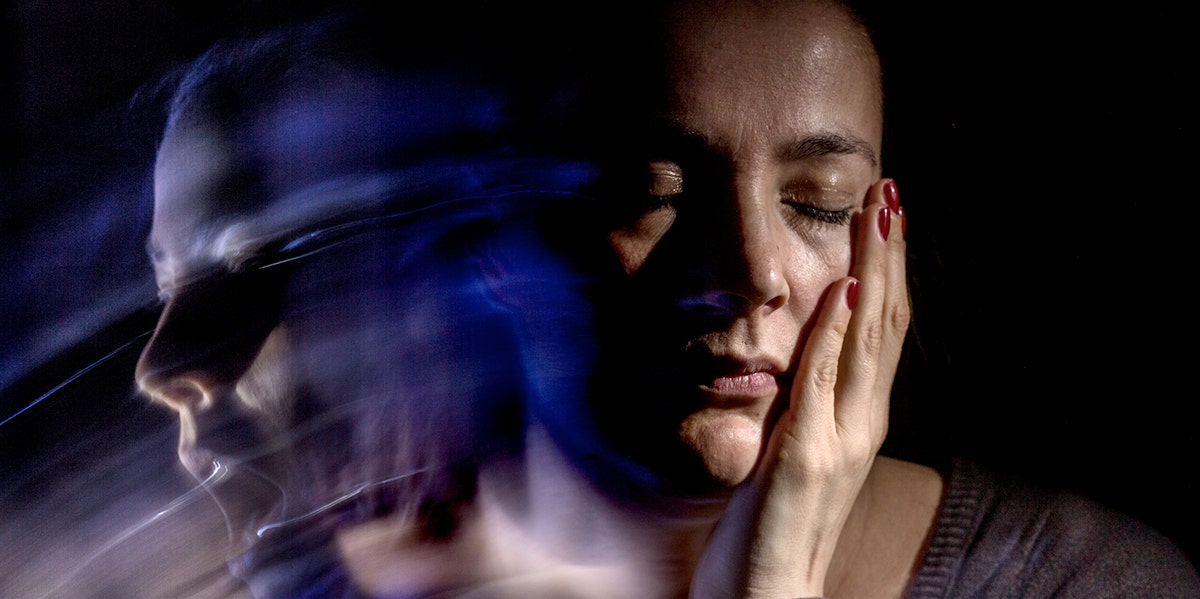12 Big Signs You (Or Someone You Love) Has Bipolar Disorder
Bipolar disorder is more than just good and bad moods.
 Getty Images
Getty Images When Patty Duke passed away in 2016, we lost more than a talented actress or a likable personality — we lost an advocate for bipolar disorder awareness.
In her revealing autobiography, Call Me Anna, Duke shared the horrors and secrets of her life. One of the most shocking of these secrets was the fact that she was suffering from a serious mental illness called (at the time) manic depression.
For almost twenty years, until she was correctly diagnosed at age 35, she went between periods of extreme euphoria and crippling depression. In 1997, Duke, along with medical reporter Gloria Hochman, wrote A Brilliant Madness: Living with Manic-Depressive Illness, a book that told what it was really like to have bipolar disorder.
Duke was the first major celebrity to talk openly about her manic depression/bipolar disorder, and how finally getting a diagnosis and treatment for it saved her life. We all are indebted to Duke for her work in making bipolar disorder and other mental illnesses something that not only could be talked about but should be talked about.
Everybody knows someone with bipolar disorder, whether it's a family member, coworker, or friend, but they might not recognize the warning signs of the condition. Bipolar disorder is very treatable and people with it can have successful careers, happy families, and fantastic relationships, but it can worsen if it's not treated.
Bipolar disorder causes serious shifts in mood, energy, thinking, and behavior, from the highs of mania to the lows of depression. More than just a brief good or bad mood, the cycles of bipolar disorder can last for days, weeks, or months.
And unlike everyday mood changes, the mood swings of bipolar disorder are so extreme that they get in the way of your ability to function. The manias make the depressive episodes more devastating and harder to treat.
The condition can affect both men and women and 2.8 percent of people in the United States have been diagnosed with the disorder with almost 83 percent of the cases being defined as severe.
Here are 12 signs you may suffer from bipolar disorder. Some are signs of mania, and some are signs of bipolar depression.
1. You feel way too happy for long periods of time.
You may feel overly upbeat, or extremely ecstatic for much longer than what's considered normal.
2. You get annoyed easily.
You're also constantly feeling jumpy, twitchy, or restless.
3. The only thing that can keep up with the super-fast way you're speaking is your thoughts.
They're going a mile a minute, but you can't slow yourself down.
4. You have no impulse control, which leads to risky behavior.
If you want something, you buy it. And then, you buy it in another color or you buy one for a friend, and another for yourself until you find that you've purchased four pianos or ten high-end mixers.
5. You know you're a beast at everything.
There's nothing you can't do and kill at it.
6. You feel sadness radiate from every part of your body and have no hope that anything will ever be okay.
Your sadness seems to go on and on.
7. You've withdrawn from the world, and that includes your family and friends.
You couldn't have less of an interest in things you once thought were fun.
8. Your appetite is all screwed up.
You're either chowing down like you haven't eaten in weeks, or the thought of eating seems like a foreign concept.
9. You're extremely tired.
And you feel like you have no energy at all.
10. You've become a slow talker.
It can take you forever to get just one sentence out.
11. Your memory is completely shot.
And your decision-making skills and ability to focus aren't great, either.
12. You're thinking about committing suicide or have already attempted it.
You may or may not be too fascinated with death and dying.
The signs and symptoms of bipolar disorder can be subtle, confusing, and upsetting. Many people with this condition are overlooked or misdiagnosed, resulting in a lot of pain and unnecessary suffering.
The good news is that with proper treatment and support, you can lead a wonderful life.
In 1982, a psychiatrist diagnosed Patty Duke's bipolar disorder and prescribed her lithium (still one of the most widely used medications to treat bipolar disorder) to control her mood swings. "It saved my life and it gave me life," Duke said in an interview in 1999.
If you recognize any of those signs/symptoms, please see a mental health professional. You deserve the best life possible, not one where your moods and emotions are so out of control that you feel like they're beating you up.
Christine Schoenwald is a writer and performer. She's had articles in The Los Angeles Times, Salon, and Woman's Day. Visit her website or her Instagram.

